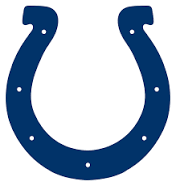Atlanta Falcons
- Paul Grange

- Sep 23, 2025
- 3 min read

When the NFL awarded Atlanta an expansion franchise in 1965, the city held a public contest that drew thousands of entries, but the winner came from Julia Elliott, a local high school teacher. She chose “Falcons”, explaining that the bird was “proud and dignified, with great courage and fight. It never drops its prey. It’s deadly and has great sporting tradition.” That description became the DNA of the franchise.
The Falcons took the field in 1966, the first major NFL franchise in the Deep South. Their badge — a black falcon in mid-dive, wings shaped into an “F” (check it out – I didn’t see it at first either). Over time the logo has evolved, but the essence remains the same: fast, sleek, merciless. It is a genuinely an awesome logo. Sort of think you’d expect to see on the side of a tank in a Sci-Fi movie or something. It screams aggression.
Atlanta itself is the perfect setting for the Falcons. Founded in the 1830s as a railroad hub, the city became known as the “Gate City” of the South, where lines of trade and migration crossed. Burned to the ground during the Civil War, it rebuilt quickly, earning the phoenix as its civic symbol. In the 20th century it rose as the capital of the New South — home to Coca-Cola, a brand created in Atlanta in 1886 that grew into one of the world’s most recognisable companies. Coke’s headquarters downtown still stand as a monument to Atlanta’s reach into every corner of the globe.
Atlanta later became the spiritual centre of the Civil Rights Movement. Martin Luther King Jr. was born there in 1929, raised in the city’s Black churches, and went on to lead a movement that reshaped America. His speeches, marches, and leadership radiated outward, but his roots never left Atlanta; he is buried there at the Martin Luther King Jr. National Historical Park. The city honours him as both a son and a prophet, and his legacy gives Atlanta a moral weight that complements its economic and cultural power.
In 1996, the city stepped onto the world stage with the Summer Olympics. The Games showcased Atlanta’s ability to host a global spectacle, fuelled in part by Coca-Cola’s sponsorship muscle. Just as importantly, the opening ceremony paid tribute to Martin Luther King Jr., whose message of peace and equality was held up before billions of viewers. The Olympics were Atlanta’s declaration that it had become not only the capital of the South, but also a player on the global stage — ambitious, diverse, and forward-looking.
On the field, the Falcons’ story has been one of peaks and heartbreak. They reached their first Super Bowl in 1999 (XXXIII), powered by Chris Chandler and Jamal Anderson’s “Dirty Bird” dance, but fell to John Elway’s Broncos. Their second chance came in 2017 (Super Bowl LI), when Matt Ryan and Julio Jones led them to a 28–3 lead against the Patriots — only to suffer one of the most infamous collapses in sports history. Painful as it was, that moment only deepened the Falcons’ identity as a team defined by hope, drama, and defiance.
Their home, Mercedes-Benz Stadium, is itself a modern icon — a retractable-roof colossus shaped like a falcon’s wing, rising in the heart of downtown as a symbol of Atlanta’s ambition.
The Falcons embody the spirit of a city that rose from ashes, built the modern soft-drink industry, became the voice of Martin Luther King Jr., thrived in the spotlight of the 1996 Olympics, and the roar of fans every Sunday from the Mercedes-Benz stadium – it is a city that has become the South’s global capital.







Comments